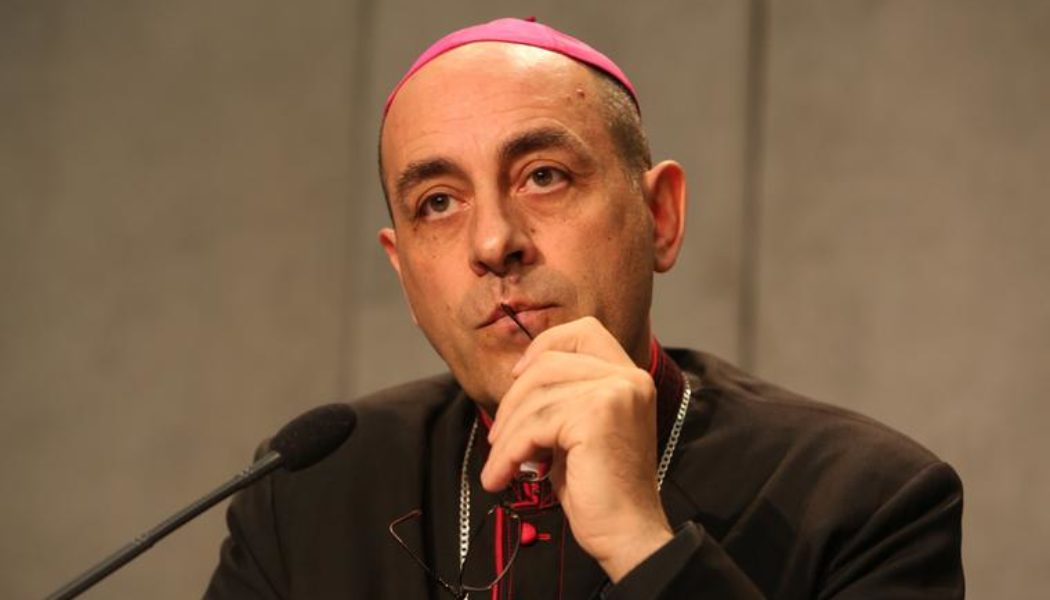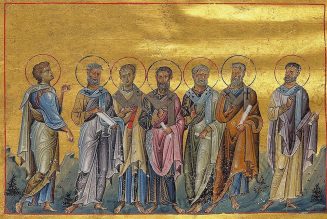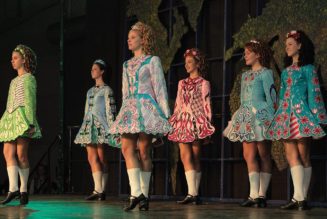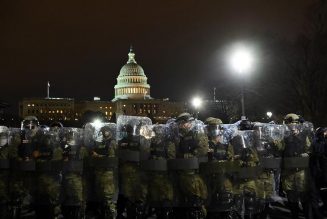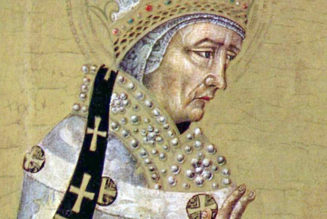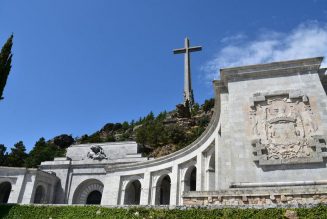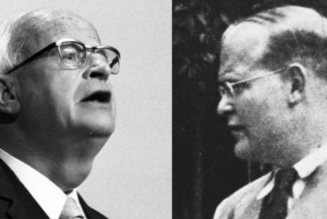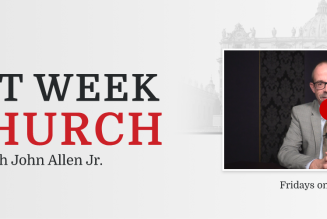
Has Pope Francis finally found his Ratzinger?
On July 1, the Holy Father appointed Archbishop Víctor Manuel Fernández of La Plata, Argentina, the new prefect of the Dicastery for the Doctrine of the Faith (DDF), the Vatican department once known as “La Suprema.” Archbishop Fernández now occupies the office once held by Pope St. Pius V and most famously in recent times by Pope Benedict XVI — Joseph Ratzinger.
It was a surprise appointment; the archbishop of La Plata was known to be a favored son of Pope Francis and widely reputed to be the principal drafter of some of the Holy Father’s most important documents — Evangelii Gaudium and Amoris Laetitia. Yet he was thought to be a behind-the-scenes figure, influential to be sure, but not the sort of figure that would command wide esteem as an experienced prelate or gifted theologian.
Of course, he’s no Ratzinger on the latter score; no one is, not even Cardinal Luis Ladaria, the outgoing prefect, or his predecessor, Cardinal Gerhard Müller, both of whom were considered first-rank theologians. When Pope St. John Paul II appointed Cardinal Ratzinger in 1981, his most famous work was Introduction to Christianity, still in print today and universally regarded as an accessible theological classic. The best-known work of Archbishop Fernández is his 1995 book, Heal Me With Your Mouth: The Art of Kissing. To be sure, that was not intended to be a theological work, and was conspicuously absent from the list of publications the Vatican issued upon his appointment. Archbishop Fernández has more than 300 published books and articles, many in reputable theological journals.
Still, Archbishop Fernández is the Holy Father’s Ratzinger in that his appointment is a signal moment, eliciting strong reactions. In 1982, those who highly praised Ratzinger’s Introduction to Christianity and his role in founding, along with Hans Urs von Balthasar and Henri de Lubac, the theological journal Communio, were jubilant. But there were many detractors, who would continue to denounce Ratzinger in the subsequent decades.
Likewise, for those who regard Kissing and Amoris Laetitia as signal achievements, jubilation greeted the elevation of Archbishop Fernández. There are detractors, too, and Archbishop Fernández addressed them on Facebook after his appointment, calling them “groups opposed to Francis that are enraged.”
In tying himself to Pope Francis — he who opposes me opposes the one who appointed me — Archbishop Fernández is explicitly aspiring to the role that Ratzinger played for John Paul, the privileged interpreter of the pontificate. So just as John Paul was happy to have his ministry judged by his choice of principal collaborator, so too Archbishop Fernández thinks that his appointment serves the same role for Pope Francis.
The most important aspect of the Fernández appointment is that the Holy Father now has someone in a key office who is entirely sympathetic to his doctrinal and pastoral vision, the heart of which is the rhetorical opposition of the two, with the latter taking precedence over the former. Reality trumps the idea, Pope Francis wrote in an unusual appointment letter, meaning that the pastoral trumps the doctrinal. Archbishop Fernández is thus a true novelty at the Vatican doctrinal office, a prefect who accepts, more or less, that doctrinal truths can be an obstacle to good pastoral care.
It is possible that Archbishop Fernández, at age 60, will guide the doctrinal office for 15 years or more — though of course another pope is not obliged to keep his predecessor’s appointees. Pope Francis nevertheless has largely done so, keeping Benedict’s appointments in place — Cardinal Marc Ouellet, for example — or even promoting them, as in the case of Cardinal Robert Sarah. The next pope may very well keep Archbishop Fernández.
Four other aspects of the archbishop’s appointment are worth noting in these early days.
First, Archbishop Fernández marks a return to favor among those formerly suspect. When he was archbishop of Buenos Aires, Pope Francis wanted to appoint then-Father Fernández rector of the Catholic University of Argentina. The appointment was blocked by the Congregation for Catholic Education, which had doubts about Fernández’s orthodoxy. An 18-month standoff ensued, and finally Father Fernández got the post in 2011.
In that sense, the elevation of Archbishop Fernández is similar to what the Holy Father has done elsewhere. For example, in Lima, Peru, Pope Francis rapidly accepted the resignation in January 2019 of Cardinal Juan Luis Cipriani and replaced him with a professor at the Catholic university that Cardinal Cipriani had battled with in the past. Father Carlos Castillo Mattasoglio was rehabilitated and elevated without any correction of his theology. Less than two years after his appointment, the new Archbishop Castillo denied the priesthood of Jesus Christ and the sacrificial nature of his death on the cross.
Second, Archbishop Fernández shares something of the Holy Father’s penchant for abrupt treatment — recall the papal dismissals of Cardinal Müller in 2017 and Cardinal Angelo Becciu in 2020. Archbishop Fernández was made a bishop in May 2013, one of the first appointments of Pope Francis. He remained as rector of the Catholic university.
In 2018, he was appointed archbishop of La Plata, the second-most-important diocese in Argentina. He replaced Archbishop Hector Aguer, who had reached retirement age. Archbishop Aguer was more conservative, Archbishop Fernández more progressive, and Archbishop Fernández made it clear that Archbishop Aguer was to leave immediately and was not to be resident in the archdiocese. He was to live elsewhere. If that shows Archbishop Fernández’s spirit of fraternity, what will he do with an office that now has real disciplinary powers?
Third, Archbishop Fernández’s appointment came accompanied by a personal letter, in which Pope Francis told him, more or less, to leave the disciplinary aspects of the DDF, especially regarding sexual abuse, to others. Archbishop Fernández will certainly not be a Ratzinger then. Cardinal Ratzinger used the traditional role of the DDF as judging the most serious cases to lead the global fight for sexual-abuse reform. Archbishop Fernández does not feel “qualified” to do that, and so has advertised, with papal approval, that he will not handle the sexual-abuse cases that, by law, must be referred to the DDF. The prefect will be absent from what is a critical mission of the DDF.
It’s curious, like the attorney general saying that he will recuse himself from prosecutorial decisions and instead focus on legal philosophy. Why might that be?
One suspects that Archbishop Fernández wants to be insulated from the Zanchetta case, his fellow Argentinian who was also an early 2013 appointment of Pope Francis. Bishop Gustavo Zanchetta, along with Archbishop Fernández, represented the Holy Father’s early vision for the Church in Argentina.
Bishop Zanchetta was a catastrophic appointment. He has been convicted of sexually abusing seminarians, and his case is a candidate for the most mishandled abuse case in recent years. Pope Francis handled it personally, bringing Zanchetta to Rome in 2017 and protecting him by creating a new Vatican job especially for him.
Eventually, when the civil law caught up with Bishop Zanchetta and the Holy Father’s patronage was a terrible stain on the pontificate, Pope Francis cut him loose, washing his hands of the affair and leaving it for the DDF to handle. That was in 2019. Four years later, despite a criminal conviction and sentence, the DDF has not concluded his case.
Eventually, the DDF will have to rule on Bishop Zanchetta. In addition to Archbishop Fernández’s own record in La Plata, which has come in for criticism, does the head of the DDF really want to rule on his fellow Argentinian — his fellow early star of the pontificate — in a way that would constitute a major embarrassment for Pope Francis? The Holy Father’s letter permits him to take a pass on that file.
Fourth, whatever aspirations the Holy Father has for Archbishop Fernández in his new role, for the next year there is only one priority at the DDF: Germany. Cardinal Ladaria — to say nothing of the Holy Father himself — repeatedly intervened to prevent the German Church from embracing deviations from Catholic doctrine and practice. Whatever the progressive hopes may be for Archbishop Fernández, his principal task will be to rein in his fellow progressives in Germany.
Cardinal Ratzinger was rather good at such reining-in efforts.
